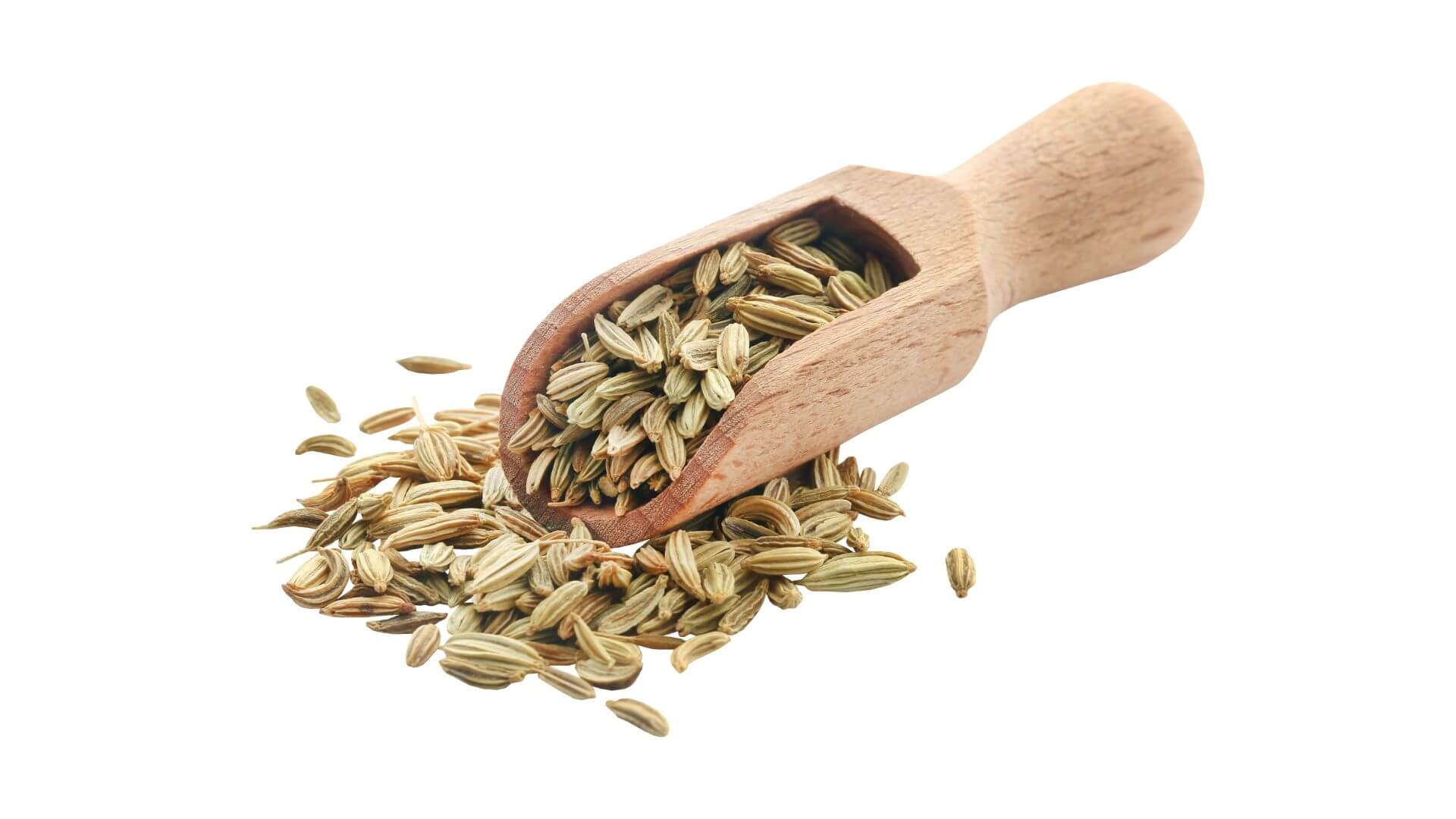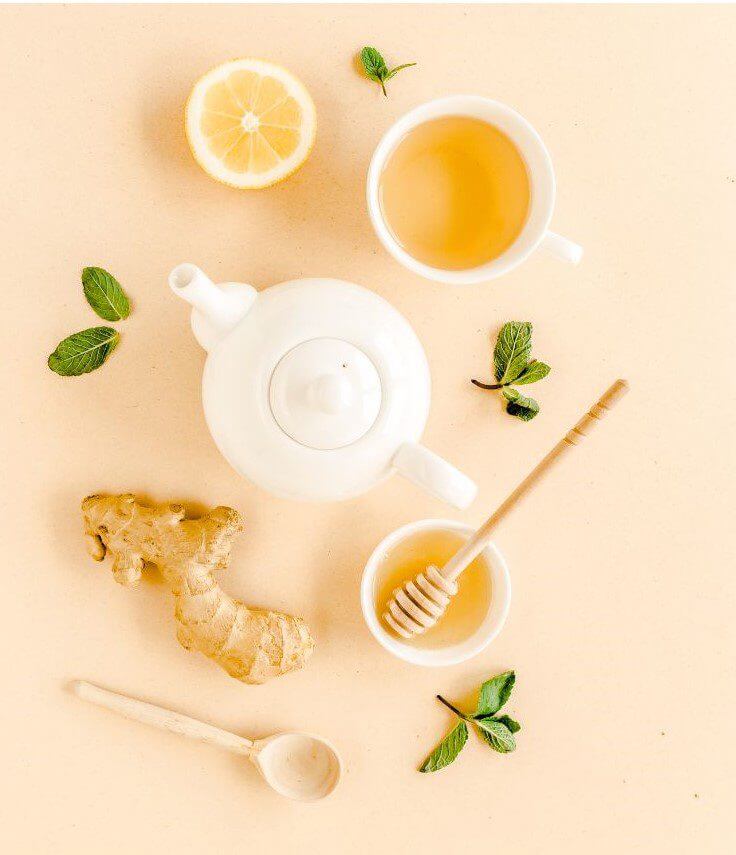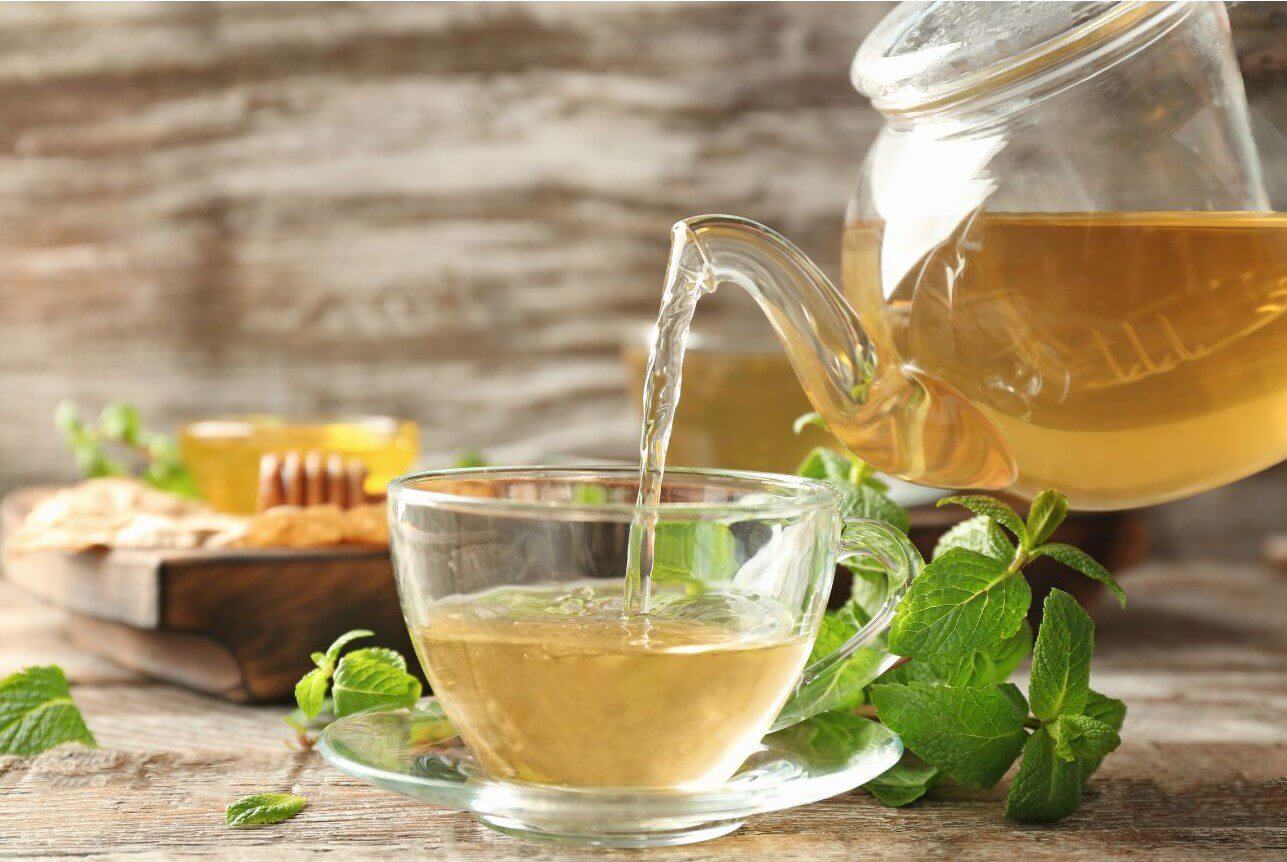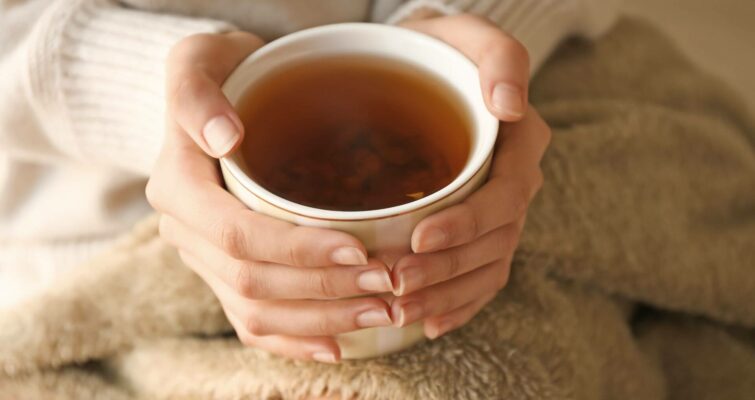Do you suffer from bloating on a regular basis? If so, you’re not alone. Bloating is a common problem that many women face. There are many things that can cause bloating, such as poor digestion or eating too quickly. However, one of the best ways to relieve bloating fast, and soothe your digestive system is by drinking tea. Certain herbal teas are a holistic remedy for good digestion, and can help decrease the factors that cause bloating in women.
Let’s find out which Ayurvedic teas are the best to reduce bloating, and how to make them!
Want to get holistic wisdom and modern wellness all in one place? Find out if the Superwoman Circle is right for you!
What’s causing your bloated stomach?
Bloating is one of the most common digestive complaints, and even though sometimes it’s normal—like during your menstrual cycle, or after eating a big meal—it’s still uncomfortable and frustrating. Abdominal bloating can also cause stomach pain.
Bloating is most often a temporary issue in your digestive system that will resolve in a few hours, and it’s usually caused by things like:
- Eating too fast
- Stress
- Carbonated drinks
- High fiber foods (especially if you don’t eat a lot of fiber normally)
- Hormone changes
- Food sensitivities or intolerance
Sometimes, there are underlying digestive disorders to blame for a bloated stomach, like Candida overgrowth. If this is the case, you’ll likely notice other symptoms as well, like fatigue, brain fog, joint pain, or irregular bowel movements.
You may need to work with a holistic provider to solve these issues.
Watch: How to Treat Candida with Food
To relieve bloating associated with factors associated with mild digestive issues, indigestion, or other temporary factors, try one of these 5 teas for a natural remedy.
5 Teas to Relieve the Bloat
CCF tea

CCF tea, which stands for its ingredients—coriander, cumin, and fennel—has anti-inflammatory properties that aid the digestive process and provide other health benefits. Studies show these herbs aid gut health, fight inflammation, and may even help you lose weight (1,2).
This tea has been a staple in Ayurvedic tradition for hundreds of years, usually used to soothe stomach discomfort, stimulate the digestive fire (called agni), and alleviate symptoms of indigestion like bloating.
To make CCF tea:
Ingredients:
- ½ teaspoon cumin seeds

- ½ teaspoon coriander seeds
- ½ teaspoon fennel seeds
- Water
- Optional: honey or lemon to taste
Add all the ingredients except water to a teapot. Pour boiling water over the spices, and let the tea steep for five minutes. Strain the tea and drink it hot, with honey or lemon if desired.
Also try these: 9 Easy Anti-Inflammatory Recipes Worth Trying
Dandelion tea
Dandelion tea is also a great detoxifier and can help decrease bloating caused by excess water retention. This is because dandelion is a natural diuretic, meaning it helps the body get rid of excess water (3). This is great for when you’ve eaten a super salty takeout meal, or for when hormones cause your body to hang onto more water.
While the leaf of the dandelion has detoxifying and anti-bloating properties and is known to cleanse the liver, kidneys and skin, dandelion root is also rich in prebiotics—a type of fiber that feeds beneficial gut bacteria (4). This can improve digestive health, which may make bloating less likely to happen in the future.
You can add dandelion leaves to a cup of boiling water, steep for 5 minutes, and enjoy plain or sweetened with a little raw honey.
Read: 3 Detox Methods That Actually Work

Ginger tea
Ginger is a staple in Ayurvedic digestive remedies. It’s been used for centuries to calm an upset stomach, and facilitate movement in the digestive system. If you’re feeling bloated due to sluggish digestion, ginger has been shown to gently promote stomach emptying (5). And not the kind that will leave you running for the nearest bathroom, but just enough to reduce bloating and alleviate discomfort.
You can add a few small slices to boiling water, let steep for about 7 minutes, and add a squeeze of lemon or honey if you like.
Spearmint tea
Spearmint tea is refreshingly smooth and naturally sweet, and is used for everything from indigestion and bloating, to alleviating discomfort associated with issues like irritable bowel syndrome, or IBS.
Because spearmint has naturally-occurring compounds that gently relax the digestive system, it can alleviate cramps and bloating caused by an overly sensitive digestive tract (6). For those with PCOS, spearmint tea may hold other more exciting benefits as well. Learn more in the video below.
Watch: Top 5 Herbal Teas for Hormone Balance
Lemon balm tea

Lemon balm tea may relieve mild digestive discomfort, including bloating and gas, based on its traditional use. Lemon balm is actually a plant in the mint family, so in addition to its light and lemony flavor, it also carries a hint of mint.
Lemon balm contains constituents that soothe tense muscles, such as those surrounding the stomach and uterus, relieving cramps, gas, and nausea (7). Thanks to this action, lemon balm tea might even help relieve menstrual cramps.
Make lemon balm tea by adding about 1/4 teaspoon of dried lemon balm herb to hot water. Steep and drink up to four times daily.
As always, speak with a qualified holistic practitioner about the safety of certain herbs, especially if you’re currently taking any medication or other dietary supplements that may interfere.
Other things to help with bloating
- Eat slowly. During mealtimes, slow down and focus on your food. This primes your gut to properly digest and absorb nutrients. And, eating slower will decrease the likelihood of swallowing air while you eat (more air swallowed equals more air in your belly).
- Avoid gas-causing foods. Some foods are more likely than others to cause bloating, and this goes for a lot of foods you probably think of as “healthy”. Limit things like cruciferous veggies (broccoli, cabbage), beans, sugar alcohols (common in low-cal sweets). Some people also struggle to digest salads, due to the amounts of raw lettuce, and this can also cause bloating.
- Get moving. Movement can aid digestion and improve digestive symptoms. So if your bloat is due to slow digestion, a little physical activity is a great help to facilitate natural movement in your digestive tract.
- Prime your stomach for digestion. Start your day with a glass of room temperature or warm lemon water. The slight acidity of lemon juice prompts digestive enzymes and gastric secretions to properly digest meals throughout the rest of the day, making it less likely you’ll have to deal with uncomfortable gas or bloating.
- Add Belly Fix to your routine. Soothe inflammation and irritation caused by poor digestion. Fermented superfoods and healing amino acids help to promote digestive comfort and repair damage to the lining of the gut. A healthy digestive system can help alleviate symptoms like bloating, gas, and other uncomfortable digestive issues.
Using herbal tea to relieve bloating
Bloating is a common problem for women, and there are many causes such as sluggish digestion or eating too quickly. Luckily, certain herbal teas can help alleviate symptoms like bloating, gas, and abdominal cramps brought on by indigestion. Cumin, coriander, and fennel tea—or CCF tea—is a staple in Ayurvedic traditions, along with ginger tea, lemon balm, and others. Which one will you try to find relief from uncomfortable bloating?
Resources
- https://pubmed.ncbi.nlm.nih.gov/24829694/
- https://www.ncbi.nlm.nih.gov/pmc/articles/PMC7831938/
- https://pubmed.ncbi.nlm.nih.gov/19678785/
- https://www.mdpi.com/1420-3049/22/9/1409/htm
- https://www.ncbi.nlm.nih.gov/pmc/articles/PMC6341159/
- https://pubmed.ncbi.nlm.nih.gov/16868824/
- https://www.sciencedirect.com/science/article/pii/B9780323358682000451



